How Much Does An Autism Evaluation Cost?

Introduction to Autism Evaluation Costs
When seeking an autism diagnosis, understanding the potential costs involved is crucial for families and individuals. Autism evaluations are essential for identifying ASD traits and planning appropriate interventions, but their prices can vary widely based on numerous factors. This article aims to provide a comprehensive overview of the typical costs, influencing factors, available options for financial assistance, and what to expect when pursuing an autism evaluation.
Range of Costs for Autism Evaluations
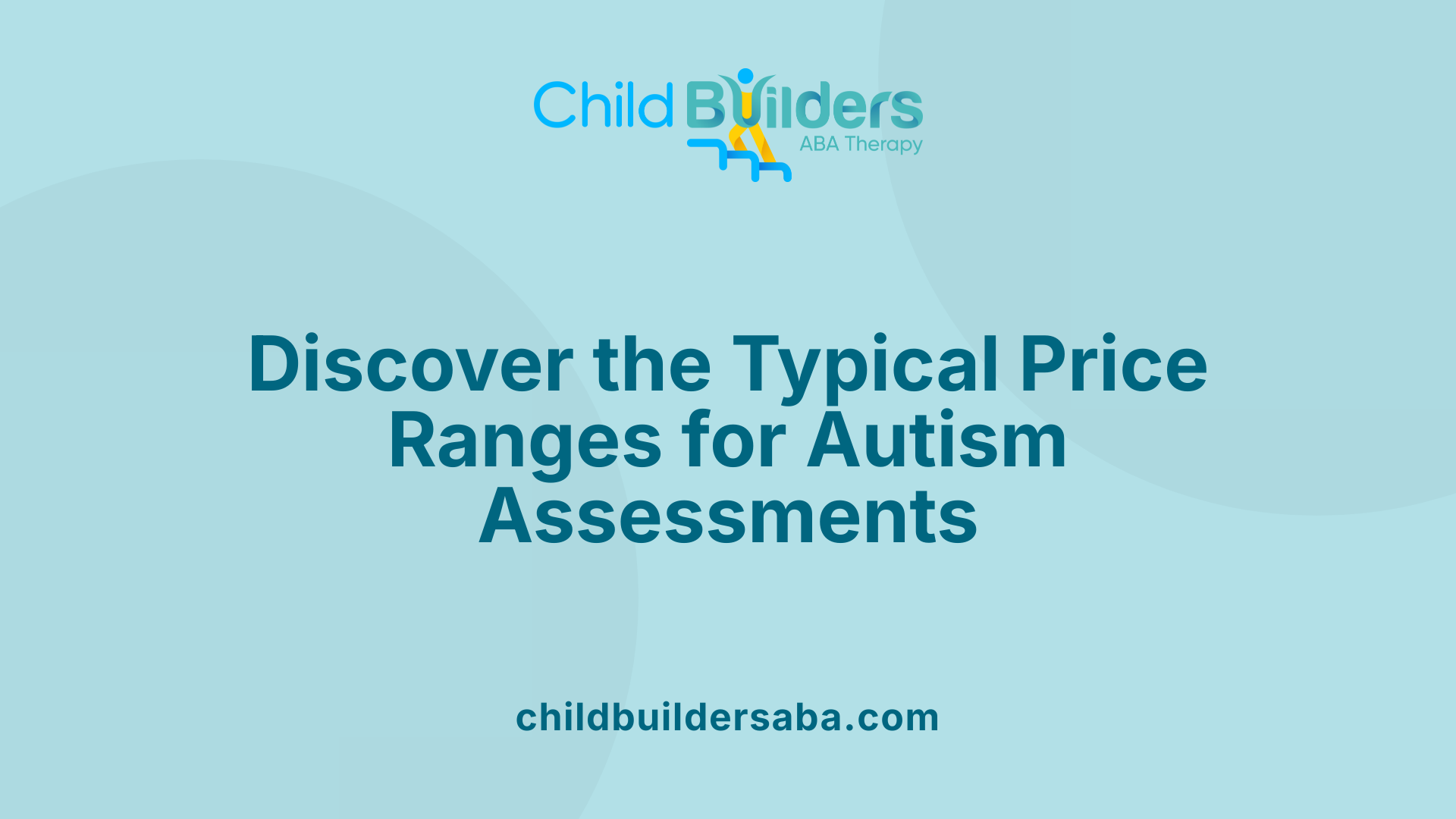
What are the typical costs and price ranges for autism evaluations?
The expense of autism assessments varies significantly based on several factors, including location, the type of evaluation, and the professionals involved. Generally, these evaluations cost between $1,000 and $5,000 or more. In urban areas such as California and New York City, prices tend to be higher, with comprehensive assessments reaching $2,500 to $10,000. Some specialized neuropsychological evaluations can cost up to $9,000 or higher.
Insurance coverage can play a crucial role in reducing out-of-pocket costs. Many states, including California, have laws mandating coverage for autism diagnosis and related services, but specifics depend on individual insurance plans. If covered, families might only pay minimal copays, often ranging from $20 to $100 per visit, or a percentage of the total cost.
The type of professional conducting the evaluation influences the price. Psychologists, developmental pediatricians, psychiatrists, and neuropsychologists all offer these services but at different price points. For example, neuropsychologists typically charge between $2,000 and $5,000, whereas developmental pediatricians may charge from $1,000 to $3,000.
Assessment complexity, whether a basic screening, focused assessment, or full evaluation with tools like ADOS-2 and ADI-R, also impacts the cost. Full evaluations that include comprehensive testing tend to be more expensive. Additionally, geographic location matters: urban centers usually have higher prices owing to the cost of living and specialized services.
Families seeking evaluations are advised to verify insurance coverage beforehand and inquire about all potential fees. Understanding these variables helps set realistic expectations and plan financially for autism assessments.
| Evaluation Type | Typical Cost Range | Additional Details |
|---|---|---|
| Basic developmental screening | Usually free or minimal copay ($15-$25) | Performed by pediatricians or primary care providers |
| Informal autism screenings | $0 - $500 | Quick checks, not comprehensive |
| Diagnostic assessments | $1,000 - $5,000 | Includes tools like ADOS-2, ADI-R; varies by provider and location |
| Comprehensive neuropsychological evaluations | $2,500 - $9,000 | Longer, more detailed, often used in complex cases |
| Adult autism evaluations | $2,000 - $5,000 | Like the evaluation at UCLA, includes clinical and ADOS components |
Overall, understanding the wide price spectrum and the factors influencing costs can help families plan better and access necessary services.
Factors Influencing Evaluation Costs
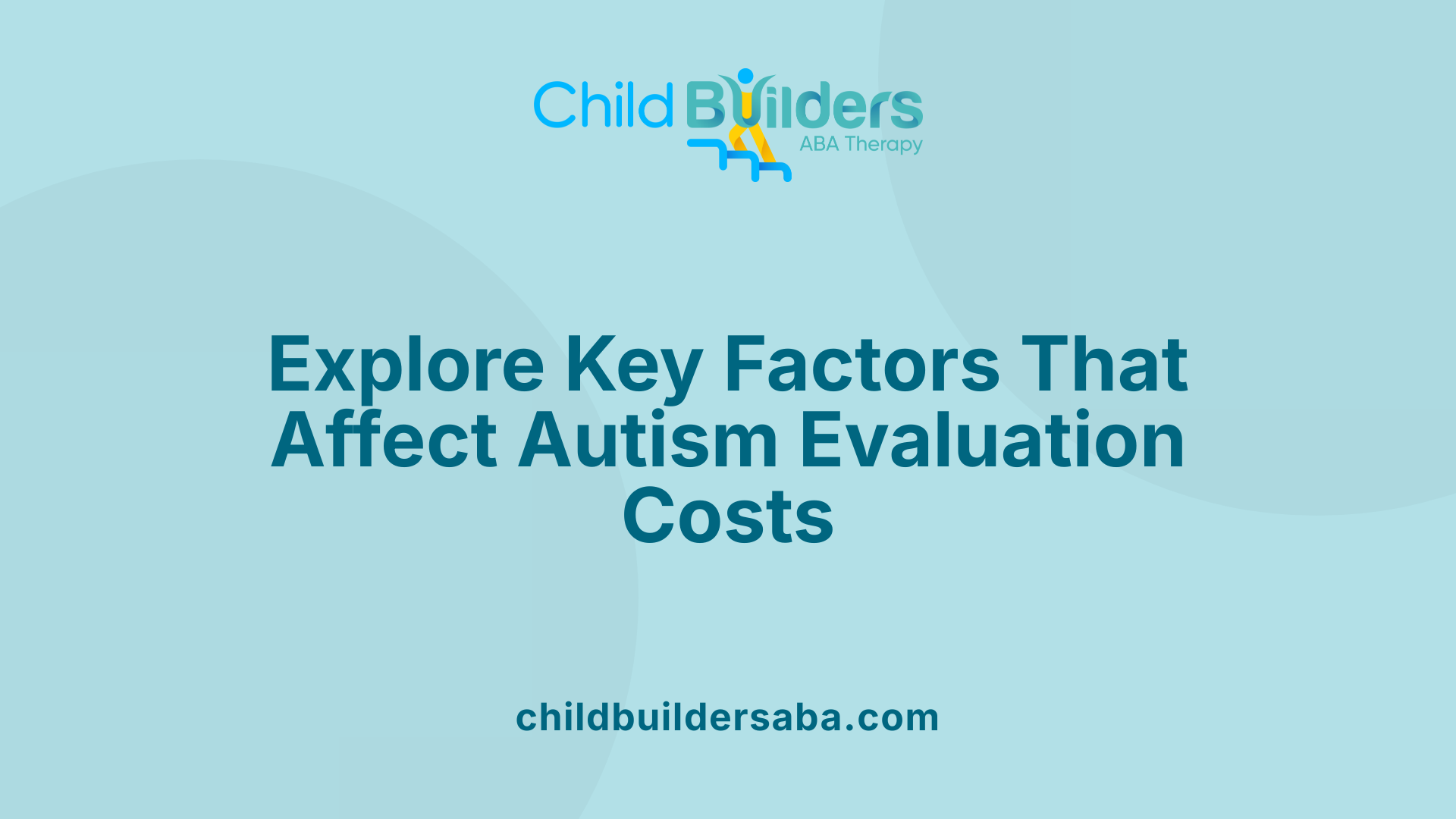
What factors influence the cost of an autism evaluation?
The price of an autism evaluation can vary widely based on several important factors. First, the type and scope of assessment play a crucial role. Some evaluations are brief screening procedures costing around $150 to $500, while comprehensive assessments—including tools like ADOS-2, ADI-R, and neuropsychological testing—can range from $1,500 up to $5,000 or more.
Second, the professional’s expertise and credentials significantly affect the fee. Psychologists, developmental pediatricians, psychiatrists, and neuropsychologists each have different fee structures. For example, neuropsychologists generally charge between $3,000 and $9,000, reflecting their specialized training and extensive testing. Developmental pediatricians typically bill between $1,000 and $3,000, with some variation depending on experience.
Third, geographic location influences costs. Urban areas such as New York City, Los Angeles, and San Francisco often have higher rates—sometimes exceeding $10,000—due to increased living costs and higher demand. Conversely, rural or less densely populated regions tend to offer more affordable options, but may have limited access to specialists.
Insurance coverage can greatly reduce out-of-pocket expenses. Many plans, including Medicaid and state programs, provide partial or full coverage for evaluations. However, coverage policies and benefits differ significantly by plan and location, which may involve copays, deductibles, or pre-authorization requirements. For example, families in California utilizing Medi-Cal might pay less than those in states without such coverage.
Additionally, assessment complexity and the use of specialized tools impact the cost. Full, multi-day evaluations that cover sensory, speech, social behaviors, and health considerations are more expensive than targeted or shorter assessments. The method of delivery also matters; in-person evaluations generally cost more than virtual assessments.
Other factors include the individual’s age—costs are typically higher for adults, ranging from $2,000 to $5,000, due to the complexity of adult presentations. The number of professionals involved (e.g., psychologists, speech therapists, occupational therapists) and the intensity of additional supports or report writing can also increase the total cost.
Finally, availability of financial assistance programs, such as Medicaid or community resources, can help offset costs for eligible families. These programs often focus on reducing barriers for lower-income households.
| Factor | Typical Impact on Cost | Description |
|---|---|---|
| Type and scope of assessment | High | Comprehensive evaluations are more expensive than screening tests |
| Provider’s expertise | Moderate to High | Specialized professionals charge higher fees |
| Geographic location | High | Urban areas increase costs, rural areas are more affordable |
| Insurance coverage | Variable | Can reduce out-of-pocket expenses significantly |
| Complexity of tools | High | Advanced assessments like ADOS-2 and full neuropsychological testing increase costs |
| Age of individual | Variable | Adults often require more complex evaluation processes |
| Additional services | Variable | Reports, records review, and ancillary services can add to costs |
Understanding these factors helps families and individuals anticipate potential expenses and explore options for financial assistance. While costs remain variable, engaging with insurance providers, Medicaid, or community programs can make autism evaluations more accessible and affordable.
Types of Autism Assessments and Their Costs
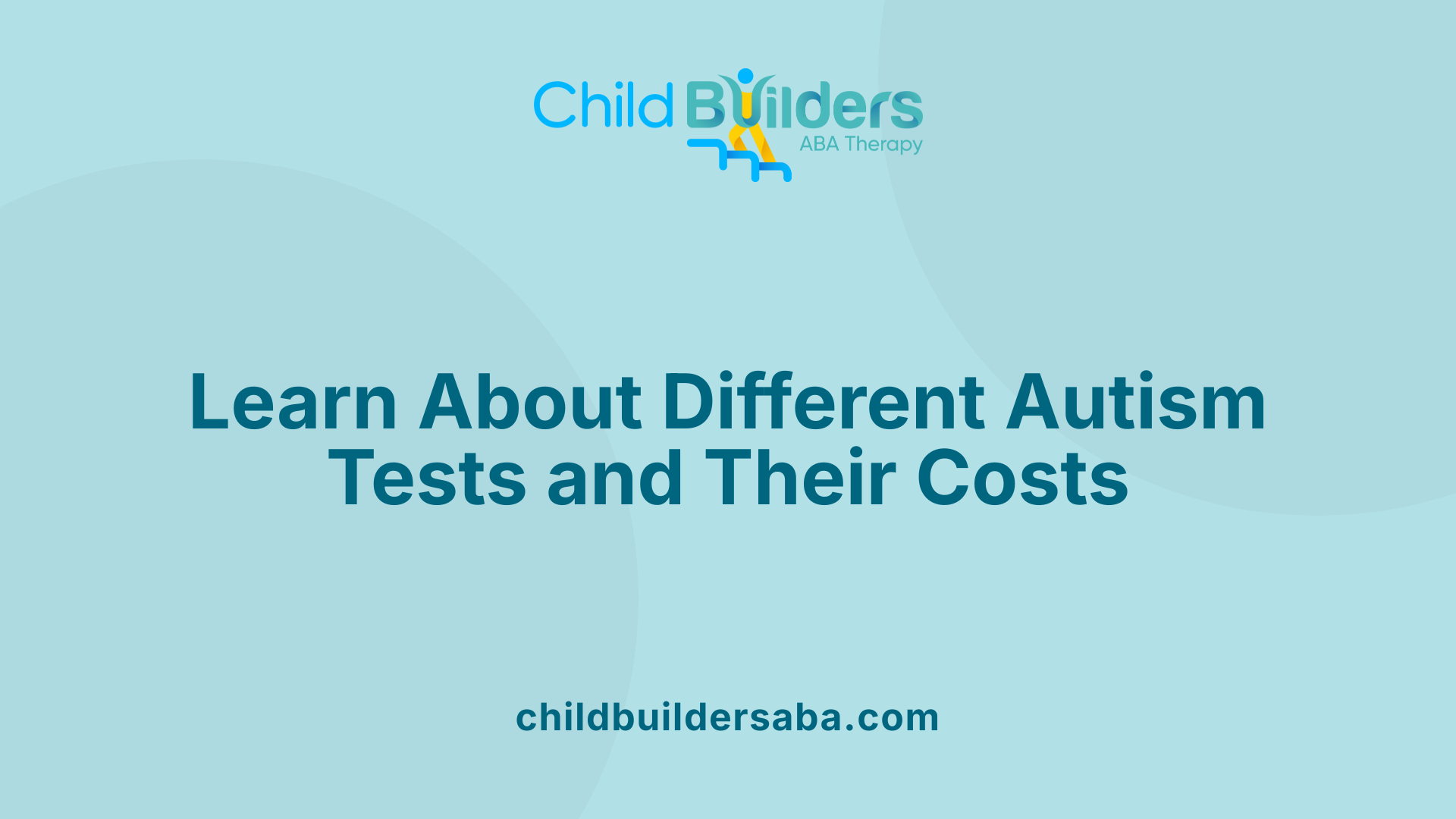
What types of autism assessments are available, and how much do they typically cost?
There are various types of autism assessments designed to evaluate different aspects of a person's development and behavior. These range from quick screenings to comprehensive evaluations.
Diagnostic evaluations are the most involved and are used to determine if an individual meets the criteria for autism spectrum disorder. These evaluations usually include standardized tests like the ADOS-2 and ADI-R. The cost for diagnostic evaluations generally ranges from $1,000 to $3,000. The exact price depends on factors such as the evaluator's expertise, the specific assessment tools used, and the geographic location.
Developmental assessments focus on areas like speech, motor skills, social interaction, and cognition. They are often performed by developmental pediatricians or psychologists to identify developmental delays or strengths. These evaluations are more affordable, with costs typically ranging from $250 to $1,500.
Comprehensive evaluations go even deeper, involving a broad set of assessments for a detailed understanding of an individual’s needs. These can include multiple testing components, observations, and health assessments. The total expense for comprehensive evaluations usually falls between $2,500 and $5,000.
Additionally, specific tests like the ADOS (Autism Diagnostic Observation Schedule) and ADI-R (Autism Diagnostic Interview-Revised) are often parts of these evaluations. The cost for individual tests varies, with ADOS assessments costing roughly $800 to $2,700, depending on the provider and location.
Speech and language assessments are also critical, especially for individuals who show language delays or communication challenges. These are typically less costly but are usually part of a full diagnostic process if needed.
The total cost of assessments can increase based on factors such as the need for multiple professionals, the number of assessments required, and the assessment setting. Urban areas tend to have higher prices, with some evaluations exceeding $3,000, particularly in cities like New York or San Francisco.
Insurance coverage plays a significant role in reducing these costs. Many plans, Medicaid, and state programs offer financial assistance, which can reduce out-of-pocket expenses considerably.
In summary, autism assessment costs vary widely depending on the scope, provider expertise, location, and insurance coverage, but most evaluations fall within the $1,000 to $5,000 range.
Insurance Coverage and Financial Assistance Options
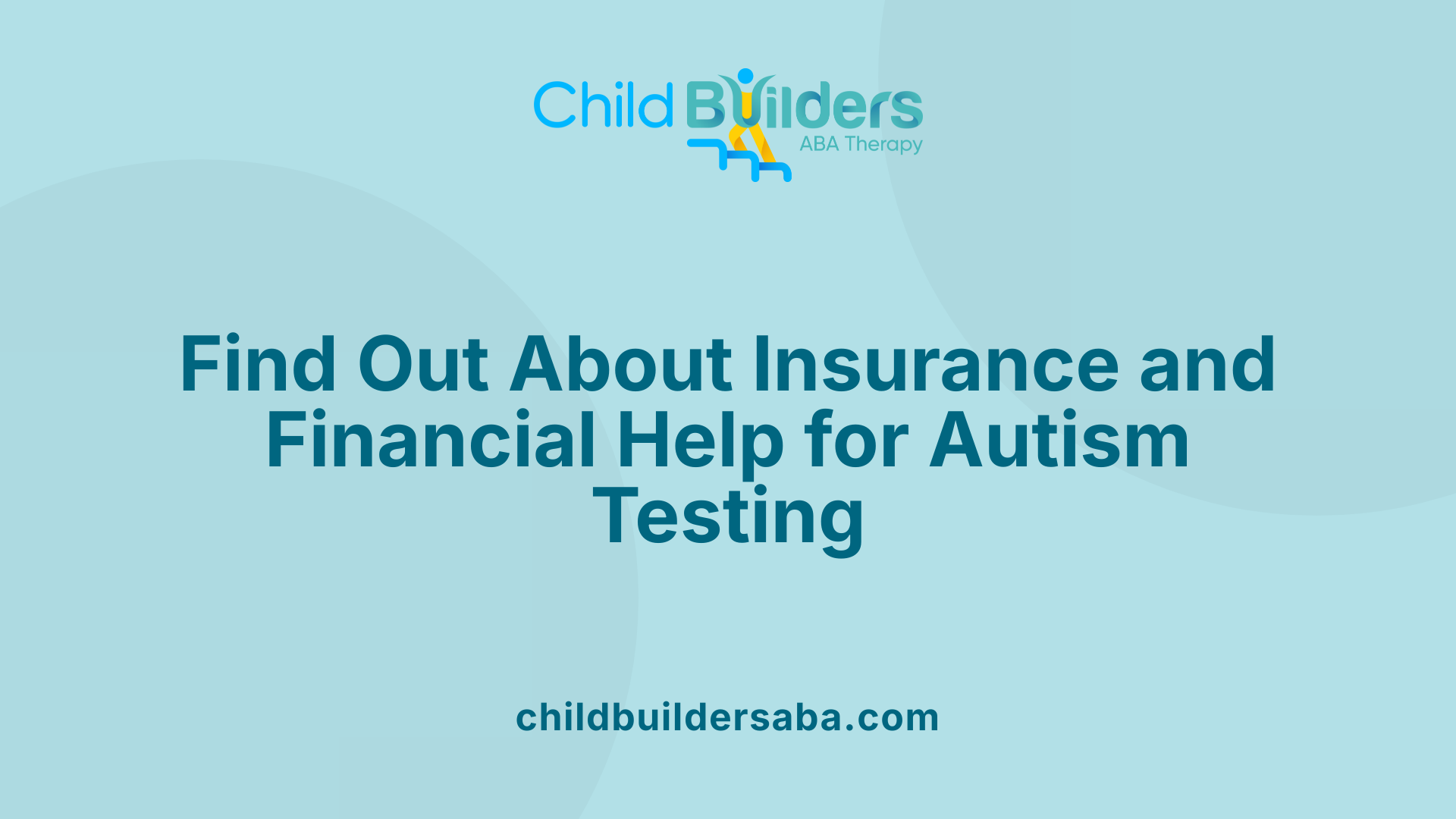
Is insurance coverage typically included for autism testing?
Insurance plans' coverage for autism testing and diagnosis varies widely depending on the provider, specific policy, and the state where the individual resides. Many private insurance policies, especially those provided through employers, do cover autism assessments, particularly when it involves diagnostic tools like ADOS or ADI-R. States such as Massachusetts require insurance companies to provide coverage for autism spectrum disorder (ASD) services, which can include testing, diagnosis, and ongoing therapies like applied behavior analysis (ABA).
However, coverage details differ significantly for adults versus children. While most states mandate coverage for children, adult coverage can be limited or less comprehensive due to regulatory differences. The extent of coverage also depends on specific policy language, whether the assessment is considered medically necessary, and other factors.
Families should review their insurance plans carefully and contact their providers directly to verify what autism testing services are covered. Consulting with insurance representatives or using online resources can clarify which services are included and what costs may be out-of-pocket.
Are there low-cost or free options for autism testing?
Yes, there are options available that reduce or eliminate costs for autism testing. Many community health organizations, research initiatives, and online platforms offer free or sliding scale assessments, especially for early screening or preliminary evaluations.
For example, online screening tools like the M-CHAT-R or the Autism Spectrum Quotient (AQ) can provide initial insights at no cost. These tools are useful for identifying whether a full professional evaluation might be needed.
Some clinics, schools, and government programs provide reduced-cost autism assessments based on income eligibility. Additionally, certain state Medicaid programs and federal assistance programs can cover part or all of the costs associated with assessments if individuals meet specific eligibility requirements.
While these options are valuable for initial screening, a comprehensive, formal diagnosis typically requires a face-to-face assessment performed by qualified healthcare providers such as psychologists, developmental pediatricians, or neuropsychologists.
How to verify insurance coverage for autism testing?
Verifying coverage involves several steps. Families should start by reviewing their insurance policy documents to understand what diagnostic services are considered covered. Contacting the insurance company directly provides clarity on what specific tests and evaluations are included.
It's advisable to ask about any required pre-authorizations, copayments, or deductibles related to the assessment. Many clinics and providers also assist patients by verifying insurance benefits beforehand, ensuring transparency about potential costs.
In states with laws mandating autism coverage, individuals can refer to their state's department of insurance or health department websites for guidance. If coverage is denied or limited, families may appeal the decision or seek assistance through state or federal advocacy programs.
Ultimately, understanding insurance options and financial assistance programs can significantly ease the financial burden of autism assessment, enabling individuals to access timely and appropriate care.
Expect the Financial Implications of Testing
What should I expect financially when seeking an autism diagnosis?
When pursuing an autism diagnosis, understanding the potential costs involved can help families plan effectively. In the United States, out-of-pocket expenses for an autism evaluation typically range from about $1,200 to $3,000 if paying without insurance. However, in high-cost regions like California, prices can climb to $5,000 or more. For example, families in Los Angeles might pay between $3,000 and $10,000, while those in San Francisco face similar ranges, reflecting the higher living and service costs in these areas.
Costs vary based on several factors. The type of professional conducting the assessment—such as a neuropsychologist, developmental pediatrician, or psychiatrist—affects the price. Neuropsychologists, for instance, may charge between $2,000 and $5,000, while developmental pediatricians tend to have lower fees, around $1,000 to $3,000.
Another expense factor is the assessment process itself, which can range from basic screenings costing around $1,000 to comprehensive evaluations that may reach $5,000. These assessments might include specialized tools like ADOS-2 or ADI-R, depending on the case complexity.
Impact of insurance coverage
Insurance can significantly reduce the financial burden. Laws in many states, including California, require coverage for autism-related evaluations and treatments. If covered, out-of-pocket costs could be as low as $20 to $100 per visit or a small percentage of the total bill, depending on your insurance plan.
It’s important to verify your insurance’s specifics before scheduling an evaluation. Some plans may cover a significant portion of costs, including assessments at clinics like UCLA, where fees can be between $5,000 and $6,000, but insurance approval is often necessary.
Additional expenses like follow-up and therapy
After diagnosis, many families pursue further services such as therapies, educational programs, and follow-up evaluations. These services can add substantial costs over time. For example, intensive behavioral therapies like ABA can cost up to $60,000 annually, with hourly rates around $120.
Follow-up appointments, additional assessments, and support services might involve extra charges. The initial evaluation may also include supplementary components like record reviews or home visits, which can increase the total expenses.
Cost ranges in different regions
Regional variation plays a significant role in assessment costs. For instance:
| Location | Typical Cost Range | Notes |
|---|---|---|
| New York City | $2,500–$3,500 | Higher due to urban healthcare costs |
| California, Los Angeles | $3,000–$10,000 | Elevated costs in some clinics |
| Texas | $1,200–$2,500 | Generally lower; regional differences in prices |
| Washington State (UW) | $2,250–$2,500 | Standard clinics with insurance support |
Costs tend to be higher in metropolitan centers where the availability of specialists and assessment tools increases the price.
Understanding the potential financial impact can help families prepare for the journey of diagnosis. Early detection often means faster access to interventions, which can improve long-term outcomes and may lessen the overall economic burden by enabling prompt support services.
The Evaluation Process and What to Expect
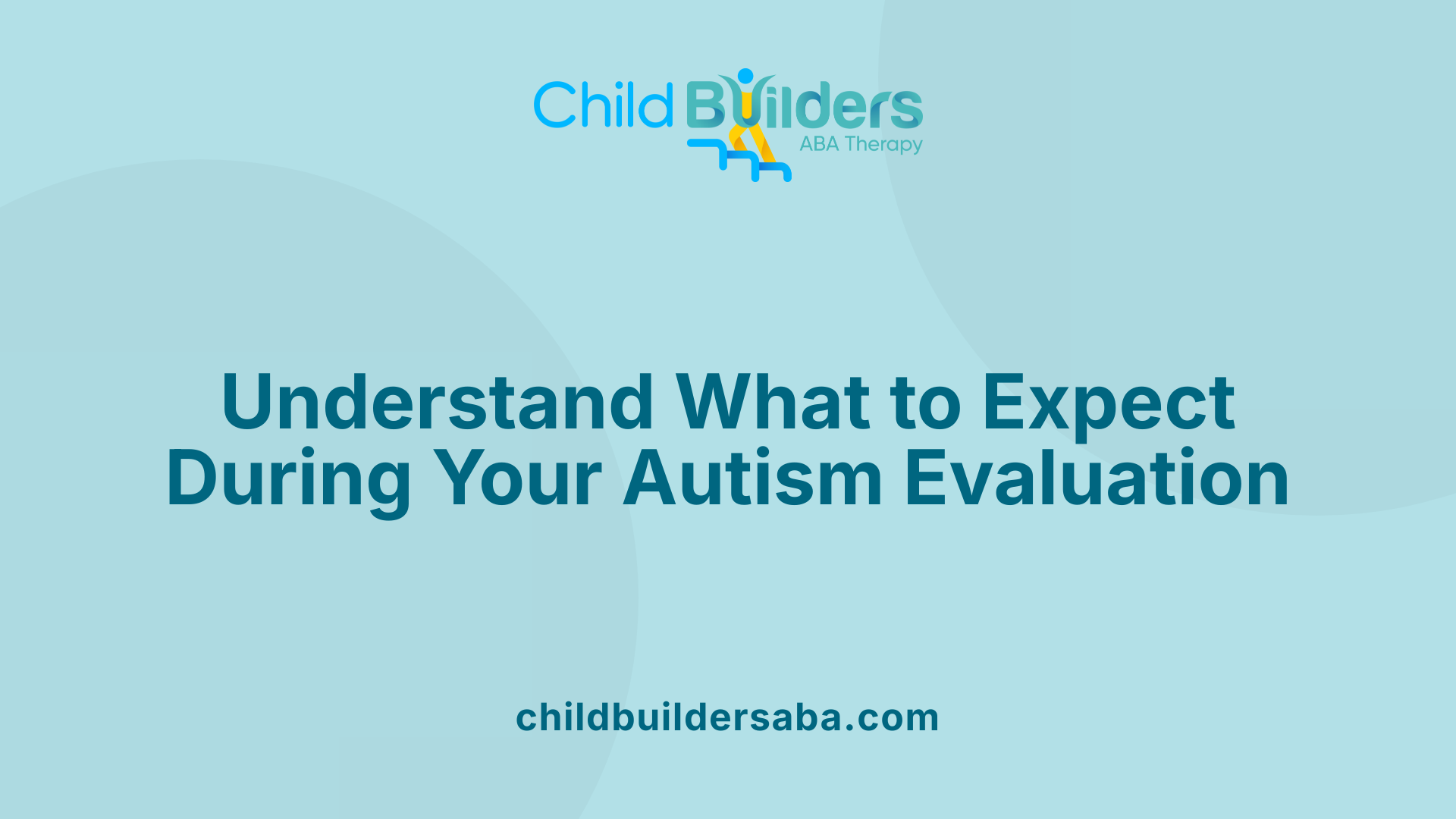
What is involved in the autism evaluation process?
The autism evaluation process is designed to identify whether an individual meets diagnostic criteria for Autism Spectrum Disorder (ASD). It begins with developmental monitoring, where parents, caregivers, and healthcare providers observe early signs and behaviors. Routine developmental screenings are recommended at specific ages, typically around 18 and 24 months.
When concerns are raised, a comprehensive assessment is conducted. This assessment involves trained professionals such as developmental pediatricians, psychologists, speech-language pathologists, or occupational therapists. The process gathers detailed developmental histories and includes specific parental interviews.
Standardized diagnostic tools are central to this evaluation. These may include instruments like the Autism Diagnostic Observation Schedule (ADOS-2) and the Autism Diagnostic Interview-Revised (ADI-R). The assessment is multidisciplinary, relying on careful observations of behavior, communication skills, and social interactions.
Importantly, this process does not involve blood tests or scans for diagnosis but focuses solely on behavioral and developmental patterns to support a diagnosis.
Final Thoughts on Costs and Planning
Navigating the financial aspects of autism evaluations can seem daunting, but with proper planning and understanding of the available options, families can better manage these costs. Being aware of the typical price ranges, factors influencing costs, and available insurance coverage or assistance programs allows for informed decision-making. Early diagnosis and intervention remain critical, and exploring all avenues for financial support can make a timely evaluation more accessible. Ultimately, investing in an accurate diagnosis paves the way for effective support and improved quality of life for individuals with ASD.
References
- How Much Does an Autism Evaluation Cost? See 3 Examples
- Self-Pay Adult Autism Program - Neuroaffirming Mental Health Care
- How Much Does Autism Testing Cost? - KMN Psych in San Diego
- [PDF] Autism Evaluations 7 1 2025 - Family Health
- What to expect when getting an adult ASD diagnosis | Autism Speaks
- How Much Does an Autism Diagnosis Cost in California?
- [PDF] fee schedule - uw autism center services
- Autism Screening Cost without Insurance | Mira Health
- Free Autism Screening for Adults - Help for Psychology
- Autism screening
























.jpg)












































































